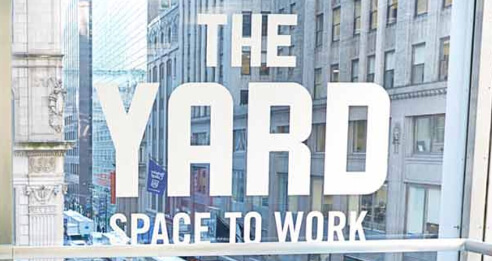
Largest Coworking Companies


Over the past decade, the concept of coworking has enjoyed tremendous success. According to statista.com the number of shared workspaces has skyrocketed from 3 back in 2005 to 15,500 in 2017. In 2018, there are expected to be 18,900 coworking spaces and counting. In October 2018 alone, 238 new enterprises entered the coworking industry. Almost half of them are new businesses.
Advocates for collaboration and community see a lot of potential in shared workspaces and predict further growth of the coworking industry to the extent that flexible offices will outcompete traditional real estate. But there are also skeptics who believe that coworking is just a fad and that the coworking bubble is about to burst. Their main argument that puts in question the long-term success of coworking lies is the fact that the majority of its members are startups. Statistics say that about 76% of them eventually will eventually fail, and the vast majority (up to 90 percent) of the remaining 24% of new companies will employ only the founder. Scoffers say that coworking can flourish and develop only as long as its inhabitants do, which is not the case as most of the startups are doomed. Let’s have a closer look and consider whether there is a risk that the coworking bubble will burst soon.
Coworking has turned around the traditional model of work. It has introduced the concept of space as a service with alluring benefits in the form of free coffee and tea, exciting social events, stylish design, possibilities of collaboration, an abundance of flexibility – everything that legacy offices don’t have. But it’s not merely a nice package and a fun place to work.

The coworking model presents an economically feasible solution to any company that has a bumpy ride. In a difficult time, an organization can downsize and move into a coworking space instead of entering into a long-term lease with a traditional commercial office. Unlike the latter, a shared workspace does not entail any long-term commitments, upfront costs associated with the space set up and design and is more scalable. Perhaps this is one of the reasons that corporations of any size and budget move into coworking spaces.
Coworking members of the established flexible offices do not have to worry about the purchase of space management software, access control, reliable Internet provider and such personnel as a receptionist, IT support or a security officer because all of the services mentioned above are provided by the service operator.
Another reason why coworking will stay afloat is because more and more developers and landlords are seeking cooperation with shared workspaces. The former have commercial space but sometimes lack the experience in turning it into a flourishing business, while the latter are adept at operating such spaces and offering the clients valuable service.

Growth support that various accelerators and incubators provide within coworking spaces should not be overlooked, too.
Therefore, the opinion that the coworking bubble will burst is one-sided. While it is true that many startups fail within a couple of years of their operation, it is important to remember that shared workspaces cater not only to startups. In fact, more and more corporate clients prefer coworking over traditional offices. It is not only the value-added service that attracts new members, but also economic reasons, the sense of connection and collaboration and a chance for professional and personal growth.
Save your community manager 41 hours each week—learn how The Yard did it with cloud-based access control.
Read the Case StudyThe Guide to Make Your Space More Profitable
Including interviews with experts and consultants.
Free access to our best guides, industry insights and more.
